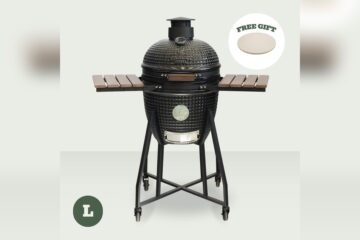Pizza sauce is generally uncooked, containing crushed tomatoes and seasonings. Spaghetti sauce is typically cooked and simmered, often with a more complex flavor profile.
Pizza and spaghetti, while both staples of Italian cuisine, require distinct sauces that are tailored to their specific needs. Pizza sauce embraces simplicity, usually featuring a raw blend of tomatoes and classic herbs like oregano and basil, which allows it to meld seamlessly with the dough and cheese as it cooks.
On the other hand, spaghetti sauce is a more intricate affair, often including a medley of ingredients such as garlic, onions, meat, and sometimes even wine or sugar, cooked down to a more affluent and thicker consistency. Understanding these differences is crucial for anyone looking to master the art of Italian cooking or simply aiming to enhance their next meal. Choosing the proper sauce can elevate the taste of your dish, ensuring every bite is as authentic as it is delicious.

Sauce Basics: Pizza Vs. Spaghetti
Understanding the nuances between pizza and spaghetti sauce is essential for any kitchen enthusiast. These staples in Italian cuisine may look similar, but they hold unique identities. A dive into their specifics reveals the subtle yet impactful differences.
Ingredients Contrast
The selection of ingredients sets the stage for the flavor profile of any sauce. Pizza sauce often relies on:
- Uncooked tomatoes
- Minimal seasonings like garlic, oregano, and salt
- A focus on the freshness of tomatoes
On the other hand, spaghetti sauce is a more decadent concoction:
- Starts with sauteed onions and garlic
- Incorporates herbs and spices such as basil and black pepper
- Often includes meat for depth of flavor
Textural Differences
Texture plays a pivotal role in distinguishing these two sauces. Pizza sauce, intended for spreading over dough, features a:
- Thicker consistency
- Chunkier texture to prevent sogginess
- Simplicity that complements the toppings
In contrast, spaghetti sauce presents a:
- Smooth, more liquid texture
- Slow-cooked to blend flavors
- Even consistency is ideal for coating pasta
Understanding these differences will enhance your culinary creations, ensuring your sauces are always spot-on for their intended use.
Culinary Origins
The culinary origins of pizza sauce and spaghetti sauce are steeped in a rich history. These sauces, essential for beloved Italian dishes, each have a story to tell. Their differences are more than just a matter of tomatoes. It’s about tradition, ingredients, and cooking styles developed over centuries.
Italian Roots
Italian cuisine is known for its regional diversity. Pizza sauce and spaghetti sauce both trace their beginnings to Italy. These sauces have nurtured Italian families for generations.
- Pizza sauce often finds its roots in Naples, the birthplace of pizza.
- Spaghetti sauce, or ‘sugo,’ varies significantly from one Italian region to another.
Ingredients and techniques came from what was available locally. Tomato types, herbs, and spices used in these sauces differ by region. This is what makes each sauce special and unique.
Evolution Of Sauces
Over time, pizza sauce and spaghetti sauce evolved differently. The way we cook and use these sauces today reflects that evolution.
| Sauce | Traditional Preparation | Use |
| Pizza Sauce | Raw, uncooked tomatoes blended with herbs | Spread on pizza dough before baking |
| Spaghetti Sauce | Simmered for hours with herbs and often meats | Tossed with cooked pasta or used as a base for other dishes |
Pizza sauce is typically a simple blend. Spaghetti sauce undergoes a slow cooking process. This brings out deeper flavors.
As these sauces traveled the world, local flavors influenced them. Today, they continue to evolve outside of Italy, reflecting global tastes.
Preparation Techniques Compared
The art of crafting the perfect sauce holds the secret to iconic Italian dishes. Pizza and spaghetti sauces may share some ingredients, but their preparation techniques set them apart. Let’s dive into how these sauces differ in their creation, from freshness to flavor profiles. These contrasts will ensure your next Italian feast dazzles with authenticity.
Fresh Vs. Cooked
Pizza sauce usually boasts a bright, vibrant flavor, commonly uncooked before spreading on the dough. On the other hand, spaghetti sauce needs time to simmer. This process melds the flavors together and creates a rich, deep taste.
| Pizza Sauce | Spaghetti Sauce |
| Uncooked, fresh tomatoes | Cooked for multiple hours |
| Quickly prepared | Slowly simmered |
| Chunky texture | Smooth consistency |
Seasoning And Spices
Seasoning plays a pivotal role in differentiating these two sauces. Pizza sauce often uses fewer spices, keeping it simple with basil, salt, and garlic. Spaghetti sauce gets adventurous with a wide array of seasonings, such as oregano, thyme, and sometimes a hint of sweetness with sugar.
- Pizza Sauce: Minimal spices; emphasis on the tomato flavor
- Spaghetti Sauce: Complex spice blend; richer flavor profile

Usage And Pairing
Understanding the role of sauces in dishes is critical. The proper sauce can elevate a meal. Let’s explore how pizza sauce and spaghetti sauce fit into the culinary picture.
Complementing The Crust
Pizza sauce matches its base, the crust. Simplicity shines here. A good pizza sauce is thick, with small chunks, and rich in tomato flavor. It spreads quickly over the dough, creating a perfect moisture barrier. This prevents a soggy crust. The mild herbs in pizza sauce fuse with the dough’s flavor to create a harmonious bite.
Consider these combinations:
- Classic Margherita: Fresh pizza sauce with basil leaves and mozzarella.
- Pepperoni Pizza: A robust, garlic pizza sauce with a spice kick.
Harmonizing With Pasta
Spaghetti sauce, also known as marinara, pairs with pasta. Its bold flavors and smooth consistency cling to noodles. This sauce uses more herbs and often contains added vegetables like onions and bell peppers. It’s cooked longer, which brings out a depth in flavor that complements pasta’s texture.
| Pasta Type | Best Sauce Pairing |
| Spaghetti | Hearty meat sauce with fine herbs |
| Fettuccine | Garlic-rich spaghetti sauce with olives |
Customizing Your Sauce
When you dive into making your sauce, the world of flavors opens wide before you. Both pizza sauce and spaghetti sauce serve as delicious canvases for your culinary creativity. Knowing how to tailor these sauces to your liking not only makes your dishes more enjoyable but can also enhance their nutritional value. Let’s explore ways to add a personal touch to these classic sauces.
Personalizing Flavors
Creating a signature sauce is all about tweaking the spices and ingredients. Start with a basic recipe for either pizza or spaghetti sauce. Then, experiment with the following:
- Fresh herbs like basil or oregano add brightness.
- Roasted garlic offers a sweet depth of flavor.
- Chili flakes bring a spicy kick for heat lovers.
- A dash of wine enriches tomato-based sauces.
Taste and adjust until it’s just right. Remember, pizza sauce is often uncooked and bolder, while spaghetti sauce cooks longer, mingling flavors deeply.
Healthier Alternatives
Health-conscious cooks can make sauces more nutritious without sacrificing taste. Consider these simple swaps:
| Ingredient | Healthier Alternative |
| Sugar | Pureed carrots or beets |
| Cream | Greek yogurt or pureed white beans |
| Oil | Reduced amount or water-sautéing |
| Cheese | Nutritional yeast or vegan cheese |
These tweaks not only reduce calories but also increase the nutritional value, with more vitamins, minerals, and fiber. Your body will thank you!
Expert Tips And Tricks
Welcome to the ‘Expert Tips and Tricks’ section, where crafting the perfect Italian sauce becomes an art. Whether topping your pizza or tossing your spaghetti, these tips ensure delicious results. Let’s dive into the specifics of pizza sauce and spaghetti sauce.
Consistency Is Key
Understanding the texture of your sauce is crucial. Pizza sauce should be thick enough to prevent the dough from going soggy. Spaghetti sauce, on the other hand, can be more fluid. It’s made to cling to pasta’s curves. Here are some guidelines for achieving that perfect consistency:
- Cooking Time: Simmer spaghetti sauce longer for a richer texture.
- Thickeners: Use tomato paste in pizza sauce for a firmer consistency.
- Water Content: Less is more in pizza sauce to prevent a runny base.
Flavor Infusion Methods
The flavor is paramount, and each sauce demands a unique approach. Here’s how to infuse them with character:
| Pizza Sauce | Spaghetti Sauce |
| Raw Ingredients: Use fresh tomatoes for a vibrant taste. Minimal Spices: Let the natural flavors shine. Quick Blend: Combine ingredients without cooking for a fresh zest. | Layered Spices: Add herbs early and cook slowly. Garlic and Onions: Sauté for a deep flavor base. Wine or Broth: Deglaze the pan to capture complex tastes. |
Pizza sauce is a more straightforward affair, often blending fresh ingredients for immediate use. Spaghetti sauce develops flavor over time, favoring a low and slow cooking process. Choose your method wisely for an unforgettable Italian meal.

Frequently Asked Questions On What Is The Difference Between Pizza Sauce And Spaghetti Sauce
Can Pizza Sauce Be Used For Spaghetti?
Pizza sauce can be used for spaghetti, but expect a bolder, more robust flavor. Typically, pizza sauce is uncooked and seasoned with a simple blend of ingredients. When used for spaghetti, it might offer a fresher, raw tomato taste compared to the traditionally simmered spaghetti sauce.
What Makes Spaghetti Sauce Different From Pizza Sauce?
Spaghetti sauce is usually cooked and simmered with a variety of herbs and often includes meat or vegetables. Pizza sauce, on the other hand, is generally uncooked, with a more straightforward flavor profile, primarily featuring tomatoes and a few seasonings. This results in a more concentrated tomato taste.
Is Spaghetti Sauce Thicker Than Pizza Sauce?
Yes, spaghetti sauce is often thicker than pizza sauce. It’s cooked down to reduce water content, which concentrates flavors and creates a more prosperous, heartier texture. Pizza sauce typically has a thinner consistency, which helps it spread quickly and bake well on pizza dough.
Are Ingredients The Same In Pizza And Spaghetti Sauce?
While both sauces include tomatoes and seasonings, the specific ingredients can vary. Pizza sauce often contains crushed tomatoes and a few select herbs. Spaghetti sauce might consist of chopped tomatoes, a more comprehensive range of spices, and possibly meat or vegetables for added flavor and substance.
Conclusion
Understanding the nuances between pizza sauce and spaghetti sauce elevates your culinary experience. Each boasts a unique blend and cooking application, honed to suit specific Italian dishes. Remember these distinctions next time you’re in the kitchen and choose accordingly to ensure your pizza and pasta shine with authentic flavor.
Embrace the culinary adventure with the perfect sauce!

As the author of the “Ultimate Pizza Guide: Recipes, Tips & Secrets Revealed,” I’m dedicated to sharing my love for pizza and empowering others to create delicious homemade pizzas with ease. Join me on a journey to uncover the secrets to perfecting your pizza game!


